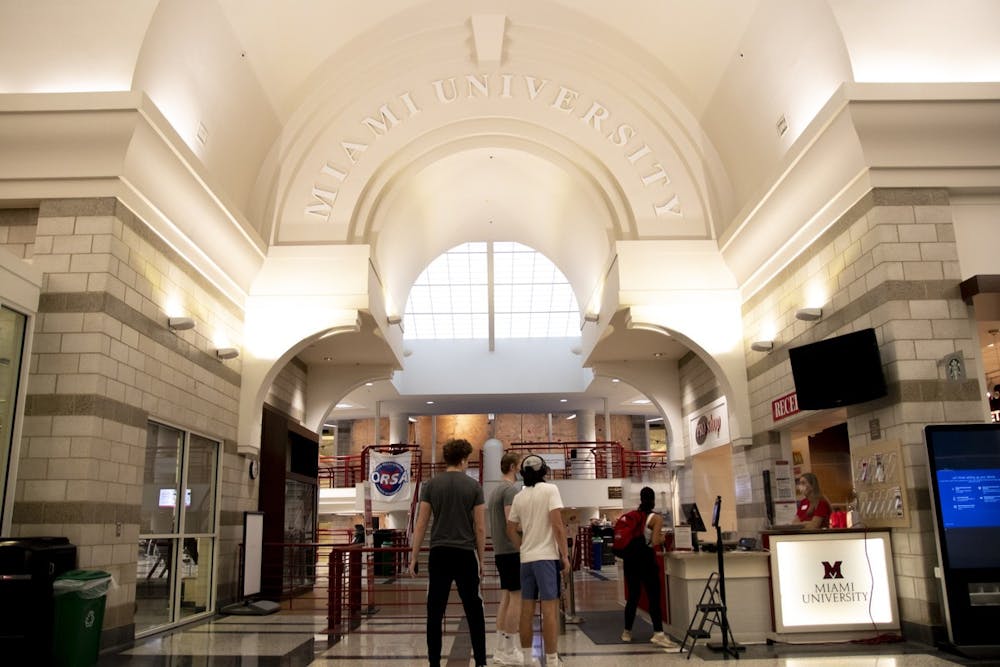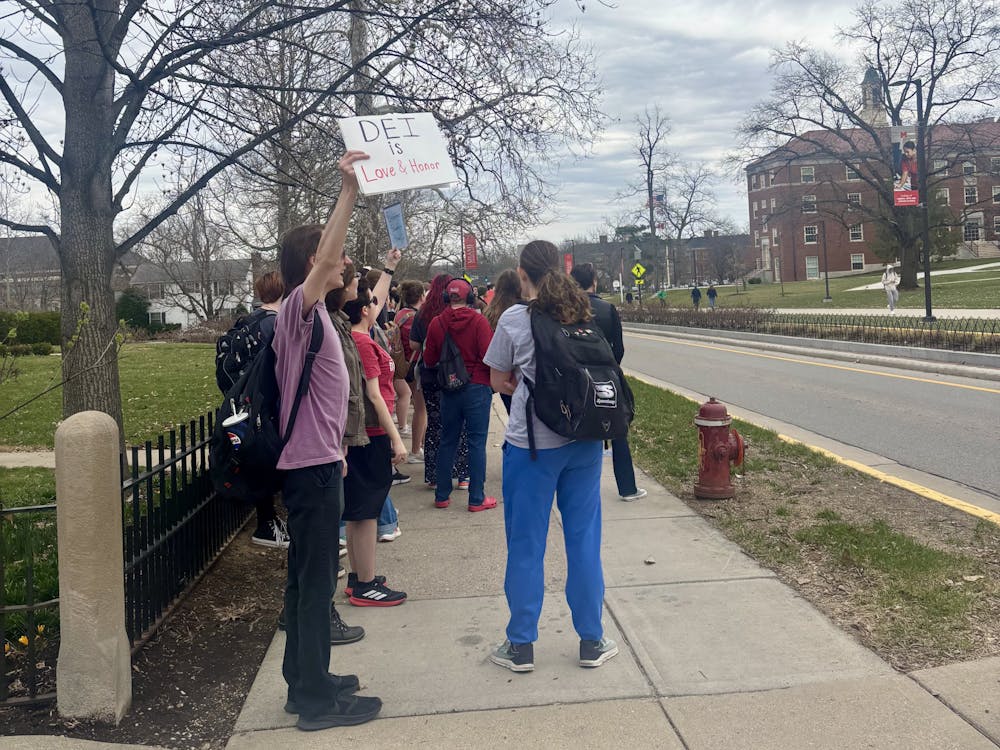When senior diplomacy and global politics and political science major Halle Sarkisian started teaching group fitness classes at the Miami University Recreational Sports Center (the Rec) her sophomore year, she had no idea things would drastically change in just a few short months.
She would later be sent home due to the COVID-19 pandemic, delaying her role as a group fitness instructor until her junior year.
Instead of teaching classes in a normal workout room, they were held in larger open spaces like the basketball courts to allow for six feet between students, and masks were required. But, while classes were back in person, attendance numbers significantly decreased.
“I totally understand, because it's a lot harder working out with a mask on but it's also really important that we keep everyone safe,” Sarkisian said. “So the numbers definitely went really low for group fit, and there was actually a possibility that the program might not continue.”
Mike Arnos, senior director of programs and academic partnerships at the Rec, said that not only are capacity regulations lower for classes, but so are general attendance numbers.
Arnos estimated that almost all classes are running at about 50% of pre-COVID attendance. While classes previously had an average of 20 people in attendance, that number has now dropped to eight to 10. Classes are now back in normal group fitness rooms, but masks are still required.
Arnos said if a class isn’t hitting an average of five people after six weeks, it will be dropped from the schedule. In a pre-COVID year, the Rec averaged 60 to 70 group fitness classes a week, which has now dropped to 45 to 50 – still an improvement from the last couple semesters.
Arnos said survey responses showed a majority of people name mask requirements as the main reason for not attending fitness classes.
“For group fitness, we found that [the mask requirement] has really reduced the number of people that are interested in doing group fitness classes for cardio,” Arnos said. “The masks also kind of restrict interest in doing that in a group when they can find something online or that they can practice from their home or dorm room.”
Sophomore accountancy and entrepreneurship major Georgia Slagel didn’t start teaching classes at the Rec until COVID-19 regulations were already in place, but she’s still feeling the effect in her classes.
She often teaches yoga, which can feature a physical-assist element (if the participant chooses) where she will push on student’s shoulders or massage their temples during the final resting pose. She’s been more hesitant during the pandemic, as masks can take away some of their senses.
“It kind of creates a little bit of a barrier,” Slagel said. “I still do the hands on if they want it, but I'm more conscious about the fact that their senses might not be as sharp because of the mask.”
Enjoy what you're reading?
Signup for our newsletter
While Slagel said she supports wearing masks in the Rec, she does find herself having to adjust her classes in other ways as well. While teaching spin classes, she sometimes scales back the difficulty level, since it can be harder to achieve while wearing a mask.
“I know when I do spin [classes] at home ... without a mask on, I definitely push myself more than if I'm doing it here in a class with a mask on,” Slagel said. “So it is more challenging.”
Miami had originally intended to reevaluate the mask mandate on Feb. 10, but announced on Feb. 9 that due to high COVID-19 numbers in Butler County, the mask mandate would remain in place for the time being.
Despite the regulations, Sarkisian said that morale at the Rec is still high.
“I think a lot of people are just happy to be back in the regular group fit rooms,” she said. “I've just seen a lot of people be super excited to all be working out together and it's super motivating.”




